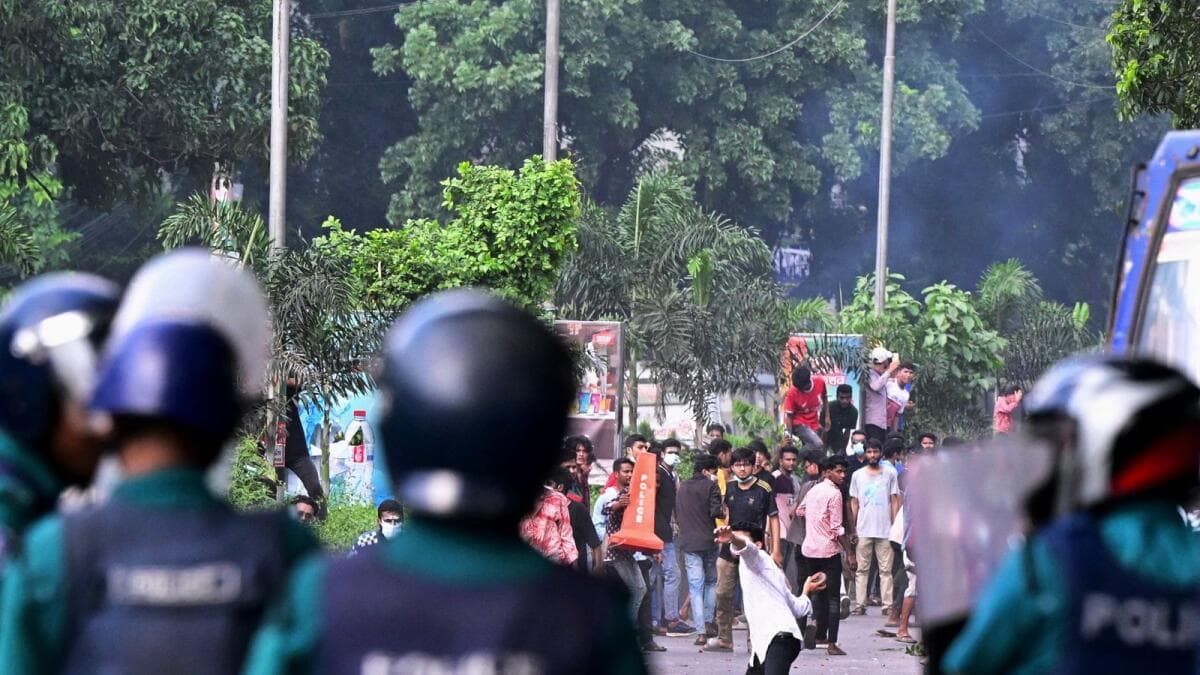
Bangladeshis' Protests & Riots Against Home Government a Violation of Strict UAE Laws
Unauthorised public assemblies and demonstrations are illegal in the UAE, carrying severe penalties
A group of Bangladeshi nationals were recently arrested for inciting riots and participating in protests across various streets in the UAE.
Chancellor Dr Hamad Saif Al Shamsi, the UAE Attorney-General, ordered an immediate investigation and referred the suspects to an "urgent trial."
According to a statement released by the prosecution, the demonstrators disrupted transportation and caused damage to both public and private property. The protesters also called for such demonstrations, recorded videos and uploaded them online.
Investigations revealed that the individuals committed several violations, including public assembly, protesting against their home country's government with the intent to cause unrest, obstructing the enforcement of laws and regulations, endangering individuals, blocking traffic and assaulting and damaging property.
These actions threaten state security and public order, potentially endangering the state's interests, said the prosecution, led by Attorney-General Counsellor Dr. Hamad Al Shamsi. The suspects remain in custody as further investigations continue.
Dr. Al Shamsi emphasised the importance of adhering to the nation's laws and warned residents against being influenced by such calls to action, noting that these constitute serious crimes with harsh penalties.
Legality of Holding Protests in the UAE and Associated Punishments
The UAE maintains strict laws regarding public assembly and protests. Unauthorised demonstrations and gatherings are illegal and can result in severe penalties. The legal framework in the UAE is designed to ensure public order and security, reflecting the nation's commitment to maintaining stability and safety for all residents.
Under UAE law, individuals involved in unauthorised protests or demonstrations can face serious charges, including incitement to riot, public disturbance, and property damage. These offences carry significant penalties, which may include imprisonment, fines, and deportation.
The severity of the punishments underscores the UAE's zero-tolerance policy towards activities that threaten public order and security. Residents are urged to refrain from participating in such actions and to respect the nation's laws.
Unrest in Bangladesh
Bangladesh is experiencing severe unrest, with protests erupting over the government's preferential hiring rules for civil service jobs.
Last week's confrontations between student demonstrators and police have resulted in at least 139 deaths, according to hospital reports compiled by AFP.
Meanwhile, Bangladesh's Supreme Court scrapped most quotas on government jobs after nationwide action led by students spiralled into clashes, but some organisers said the protests would continue.
Dismissing a lower court order, the Supreme Court's Appellate Division directed that 93 per cent of government jobs should be open to candidates on merit, Attorney General AM Amin Uddin told Reuters.
Prime Minister Sheikh Hasina's government had scrapped the quota system in 2018, under which 56 per cent of jobs were reserved for groups such as freedom fighters' families, women and people from underdeveloped districts.
But the lower court reinstated it last month, sparking the protests and an ensuing clampdown that included an internet shutdown and a curfew with the army on the streets.
The recent clashes followed similar violent protests ahead of January's national elections by Hasina's opponents in response to what they called her authoritarian rule, and by garment workers demanding better pay amid high inflation.
For any enquiries or information, contact ask@tlr.ae or call us on +971 52 644 3004. Follow The Law Reporters on WhatsApp Channels.